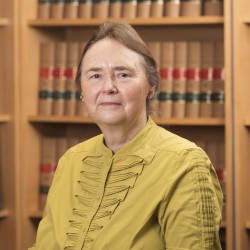“Plastic celebrities” and entrepreneurial businesses appear crucial to reducing plastic pollution in East Africa and the Caribbean
A series of roundtables is helping identify ways to reduce plastic pollution in developing countries and work towards a circular economy that uses and reuses waste products to deliver economic benefits.

The roundtables are organised by researchers at the University of Surrey in the UK and the University of Nairobi in Kenya as part of the Governing Plastics Network. The events will see representatives from government, industry, and NGOs gather online to share best practices and drive change internationally by identifying effective communication strategies and governance structures.
An event hosted by Rwanda is taking place on 29 September, and more roundtables are planned for Malawi, Ethiopia, Tanzania and Uganda over the coming months. Similar knowledge-sharing events have taken place in Kenya and Jamaica.
Already, case studies from different countries are revealing emerging trends that are key to maximising the impact of governance and communications in reducing plastic pollution and better managing waste.
Firstly, individuals who rise to fame as “plastic celebrities” play an important role, driving both governance changes and changes in public behaviour. These charismatic national or regional campaigners and entrepreneurs who can speak to both influential stakeholders and regular citizens are emerging as key advocates for change.
For example, the UK has benefited from the powerful documentaries made by David Attenborough, and in Kenya, activist and photojournalist James Wakibia successfully used diverse communication strategies to drive public behaviour and change government policy. Thanks to his savvy use of social media and hashtags, coupled with powerful imagery and creative campaign ideas, he is now credited as one of the key architects of Kenya’s single-use plastics ban.
Another emerging trend is the contribution of NGOs in defining both local and global messages focused on refusing plastics and promoting entrepreneurial alternatives. In many cases, researchers are finding that the privatisation of waste management and the involvement of entrepreneurs tend to streamline the process and speed the path to a circular economy.
Professor Rosalind Malcolm, Co-Director of the Surrey Centre for International and Environmental Law (SCIEL) at the University of Surrey, said:
“Around the world, different countries are at different stages of introducing anti-plastic legislation, and it’s vital that best practice is shared to speed progress and smooth the way for countries lagging behind. Although every nation faces distinct, unique challenges, there are also many areas of commonality, and these discussion forums have a growing momentum for driving change and reducing plastic pollution.”
To register for the Rwanda round table or to find out more about the research, visit the Governing Plastics Network website.
Featured Academics
Media Contacts
External Communications and PR team
Phone: +44 (0)1483 684380 / 688914 / 684378
Email: mediarelations@surrey.ac.uk
Out of hours: +44 (0)7773 479911
